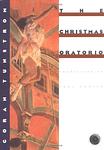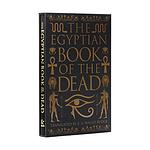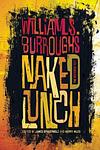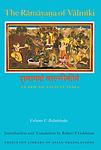Best Foreign Work of Fiction Chosen by Francophone Writers
This is one of the 300 lists we use to generate our main The Greatest Books list.
-
The Box Man by Kobo Abé
"The Box Man" is a surreal narrative about a man who chooses to live as a homeless individual, inside a box, in Tokyo. The protagonist, a former doctor, narrates his experiences and observations from within the box, and the narrative often blurs the line between reality and hallucination. The book is a philosophical exploration of identity, anonymity, and the nature of existence, challenging the reader's perception of what it means to be an individual in society.
The 1925th Greatest Book of All Time -
The Breast by Philip Roth
The book is a surreal and darkly comic novella that explores the bizarre transformation of a college professor who inexplicably turns into a giant breast. This metamorphosis leads him to confront a range of human experiences and emotions, including sexuality, identity, and the absurdity of existence. As he grapples with his new form, the protagonist reflects on his past life and relationships, while also dealing with the practical and philosophical implications of his current condition. The narrative delves into themes of alienation and the human condition, all while maintaining a satirical tone that challenges the reader's sense of normalcy and the boundaries of the self.
The 2933rd Greatest Book of All Time -
The Christmas Oratorio by Göran Tunström
"The Christmas Oratorio" is a poignant story set in a small Swedish town, revolving around a boy who loses his mother and his relationship with his silent, grieving father. The narrative is deeply embedded in music, specifically Bach's Christmas Oratorio, which becomes a source of solace for the boy. The tale is a rich tapestry of love, loss, and the healing power of music, exploring the deep emotional bonds between father and son, and the transformative power of art.
The 1079th Greatest Book of All Time -
The Divine Comedy by Dante Alighieri
In this epic poem, the protagonist embarks on an extraordinary journey through Hell (Inferno), Purgatory (Purgatorio), and Paradise (Paradiso). Guided by the ancient Roman poet Virgil and his beloved Beatrice, he encounters various historical and mythological figures in each realm, witnessing the eternal consequences of earthly sins and virtues. The journey serves as an allegory for the soul's progression towards God, offering profound insights into the nature of good and evil, free will, and divine justice.
The 27th Greatest Book of All Time -
The Egghead Republic by Arno Schmidt
The book is a satirical science fiction novella that takes readers on a journey through a post-apocalyptic world. Set in a future where a catastrophic event has fragmented society, the story follows a journalist as he travels to an artificial island known as the Egghead Republic, a haven for intellectuals and scientists. This enclave is dedicated to preserving knowledge and culture amidst the chaos of the outside world. The narrative is characterized by its linguistic inventiveness and complex wordplay, as it explores themes of isolation, the role of intellectuals in society, and the nature of human civilization through the lens of a dystopian future.
The 1853rd Greatest Book of All Time -
The Egyptian by Mika Waltari
The novel is a sweeping historical epic set in ancient Egypt, following the life of Sinuhe, a physician who rises from humble beginnings to become a trusted confidant of pharaohs and kings. Through Sinuhe's eyes, readers experience the political intrigue, war, and religious turmoil of the time, as he travels across known civilizations, from Babylon to Crete, engaging with historical figures and experiencing the cultural richness of the era. His personal journey of love, betrayal, and search for meaning is set against the backdrop of the fall of the Egyptian empire, providing a vivid tapestry of the human condition and the ebb and flow of destiny.
The 2933rd Greatest Book of All Time -
The Fifth Woman by Henning Mankell
In this gripping Scandinavian crime novel, a seasoned Swedish detective is drawn into a complex investigation when a series of brutal murders rocks his quiet community. The detective and his team are plunged into a dark world of revenge and sinister motives as they uncover the connection between the victims and a past they cannot escape. The detective's methodical approach and deep introspection lead him down a path where the killer's identity is as surprising as the motive, revealing the chilling depths of human malice and the lengths to which one will go to settle scores. As the body count rises, the detective must race against time to prevent further bloodshed and bring the perpetrator to justice.
The 5051st Greatest Book of All Time -
The Garden of the Finzi-Continis by Giorgio Bassani
Set in Ferrara, Italy during the late 1930s, the book tells the story of the Finzi-Continis, a wealthy, aristocratic Jewish family who live in a secluded mansion with a beautiful, walled garden. The narrator, a young middle-class Jew, becomes infatuated with the family's daughter, Micoleta. As the Fascist regime's anti-Jewish laws become increasingly oppressive, the idyllic garden becomes a sanctuary for the local Jewish community, including the narrator. Despite the looming threat of the Holocaust, the family remains oblivious to their impending fate, leading to a tragic end.
The 724th Greatest Book of All Time -
The God of Small Things by Arundhati Roy
This novel is a poignant tale of fraternal twins, a boy and a girl, who navigate through their childhood in Kerala, India, amidst a backdrop of political unrest and societal norms. The story, set in 1969, explores the complexities of their family's history and the tragic events that shape their lives. Their mother's transgression of caste and societal norms by having an affair with an untouchable leads to disastrous consequences, revealing the oppressive nature of the caste system and the destructive power of forbidden love. The novel also delves into themes of postcolonial identity, gender roles, and the lingering effects of trauma.
The 223rd Greatest Book of All Time -
The Great Gatsby by F. Scott Fitzgerald
Set in the summer of 1922, the novel follows the life of a young and mysterious millionaire, his extravagant lifestyle in Long Island, and his obsessive love for a beautiful former debutante. As the story unfolds, the millionaire's dark secrets and the corrupt reality of the American dream during the Jazz Age are revealed. The narrative is a critique of the hedonistic excess and moral decay of the era, ultimately leading to tragic consequences.
The 2nd Greatest Book of All Time -
The Happy Island by Dawn Powell
"The Happy Island" is a satirical novel that delves into the bohemian life of New York City in the early 20th century. It follows the story of a young, aspiring actress named Janet who moves to the city with dreams of stardom. As she navigates the vibrant and often chaotic world of theater, she encounters a cast of colorful characters, including writers, artists, and intellectuals, each with their own ambitions and disillusionments. The novel offers a sharp critique of the artistic and social pretensions of the time, exploring themes of ambition, love, and the pursuit of happiness in a society preoccupied with success and appearance.
The 2933rd Greatest Book of All Time -
The Human Stain by Philip Roth
The Human Stain is a novel that explores the life of Coleman Silk, a classics professor in a small New England town who is forced to retire after accusations of racism. The story delves into Silk's personal history, revealing that he is a light-skinned African American who has been passing as a Jewish man for most of his adult life. His affair with a much younger, illiterate janitor further scandalizes the community. The novel examines themes of identity, race, and the destructive power of public shaming.
The 801st Greatest Book of All Time -
The Iliad by Homer
This epic poem focuses on the final weeks of the Trojan War, a conflict between the city of Troy and the Greek city-states. The story explores themes of war, honor, wrath, and divine intervention, with a particular focus on the Greek hero Achilles, whose anger and refusal to fight have devastating consequences. The narrative also delves into the lives of the gods, their relationships with humans, and their influence on the course of events.
The 36th Greatest Book of All Time -
The Leopard by Giuseppe Tomasi di Lampedusa
"The Leopard" is a historical novel set in 19th-century Sicily, during the time of the Italian unification or Risorgimento. It centers on an aging, aristocratic protagonist who is coming to terms with the decline of his class and the rise of a new social order. The narrative weaves together personal drama with the larger political and social upheaval of the time, providing a rich, nuanced portrait of a society in transition. Despite his resistance to change, the protagonist ultimately recognizes its inevitability and the futility of his efforts to preserve the old ways.
The 96th Greatest Book of All Time -
The Life & Adventures Of Don Pablos, The Sharper by Francisco de Quevedo
The book is a picaresque novel that follows the life of Don Pablos, a man who aspires to rise above his lowly birth and become a gentleman. The narrative, rich in satire and social commentary, details Pablos' adventures and misadventures as he engages in various schemes and cons, often with a humorous and ironic tone. Through his journey, Pablos encounters a cast of characters from different strata of society, exposing the vices and follies of the time. His quest for social elevation is fraught with setbacks, reflecting the rigid class structures and moral hypocrisies of the era.
The 2933rd Greatest Book of All Time -
Naked Lunch by William S. Burroughs
A controversial novel that explores the dark depths of drug addiction and societal decay, following the protagonist, a junkie, as he navigates through a series of surreal and grotesque scenarios. The narrative is nonlinear and disjointed, reflecting the protagonist's fragmented consciousness and the chaotic nature of addiction. The book is known for its graphic depictions of sex, violence, and drug use, and it challenges traditional notions of morality and narrative structure.
The 321st Greatest Book of All Time -
The Night Visitor by B Traven
"The Night Visitor" is a gripping tale that delves into the complexities of human nature and the unforeseen consequences of our actions. Set against a backdrop of political and social turmoil, the story follows an enigmatic stranger who arrives in a small town, bringing with him a series of mysterious events that challenge the moral compass of the townspeople. As the narrative unfolds, the visitor's true intentions and the dark secrets of the community are slowly revealed, leading to a dramatic and thought-provoking conclusion that questions the very essence of guilt, redemption, and justice.
The 2933rd Greatest Book of All Time -
The Odyssey by Homer
This epic poem follows the Greek hero Odysseus on his journey home after the fall of Troy. It takes Odysseus ten years to reach Ithaca after the ten-year Trojan War. Along the way, he encounters many obstacles including mythical creatures, divine beings, and natural disasters. Meanwhile, back in Ithaca, his wife Penelope and son Telemachus fend off suitors vying for Penelope's hand in marriage, believing Odysseus to be dead. The story concludes with Odysseus's return, his slaughter of the suitors, and his reunion with his family.
The 28th Greatest Book of All Time -
The Tunnel by Ernesto Sábato
The book in question is a psychological thriller that delves into the mind of a painter who becomes obsessively infatuated with a woman he barely knows. His unrequited love and spiraling madness lead him down a dark path of existential angst, culminating in a shocking act of violence. The narrative unfolds through the artist's perspective, as he reflects on his actions and the alienation he feels from society, revealing the depths of his troubled psyche and his struggle to find meaning in an indifferent world.
The 2933rd Greatest Book of All Time -
The Picture of Dorian Gray by Oscar Wilde
The novel follows the life of a handsome young man who, after having his portrait painted, is upset to realize that the painting will remain beautiful while he ages. After expressing a wish that the painting would age instead of him, he is shocked to find that his wish comes true. As he indulges in a life of hedonism and immoral acts, his portrait becomes increasingly grotesque, reflecting the damage his actions have on his soul. The story serves as a cautionary tale about the dangers of vanity, selfishness, and the pursuit of pleasure without regard for consequences.
The 91st Greatest Book of All Time -
The Pillow Book by Sei Shōnagon
"The Pillow Book" is a collection of personal observations, anecdotes, and reflections by a woman in the Heian court of Japan. It presents a detailed and vivid picture of court life, including the lavish ceremonies, the rivalries and intrigues, the idle pastimes of the courtiers, and the romantic escapades of the empress and her consorts. The book also contains lists, poetry, and personal musings, providing a unique perspective on the culture and customs of the Heian period.
The 1167th Greatest Book of All Time -
Ramayana by Valmiki
The book is an ancient Indian epic poem which follows the journey of Prince Rama as he embarks on a quest to rescue his beloved wife Sita from the clutches of Ravana, the demon king. The narrative explores themes of morality, dharma (duty/righteousness), and the struggle between good and evil. The story is not just about Rama's battle against Ravana, but also his spiritual journey and the importance of upholding one's duties and responsibilities.
The 610th Greatest Book of All Time -
The Return Of The Caravels by António Lobo Antunes
In this novel, the ghosts of Portugal's colonial past return to haunt the present, as the caravels from the age of exploration sail back into the Tagus River, bringing with them the historical figures from the 15th and 16th centuries. The narrative weaves together the lives of these returned explorers with those of contemporary Lisbon's denizens, blurring the lines between past and present. Through a series of interconnected stories, the book explores themes of identity, nostalgia, and the complex legacy of colonialism, as characters grapple with the dissolution of the Portuguese empire and the reintegration of its former colonies, reflecting on the impact of history on individual lives and national consciousness.
The 4102nd Greatest Book of All Time -
The Savage Detectives by Roberto Bolaño
"The Savage Detectives" is a novel that follows the lives of two Latin American poets, Arturo Belano and Ulises Lima, who are founders of a literary movement called "visceral realism." The book is divided into three parts and is narrated by multiple characters, providing different perspectives on the protagonists. The narrative spans over 20 years, following the poets' journey from Mexico City to Europe, Israel, and Africa, as they search for a mysterious poetess and navigate through the world of literature, sex, drugs, and the complexities of life.
The 449th Greatest Book of All Time -
History of My Life by Giacomo Casanova
"History of My Life" is an autobiography of an Italian adventurer and author, who is best remembered for his often complicated and elaborate affairs with women. The book offers a fascinating insight into his life, travels, and encounters. It provides an intimate look at the social customs and life of the 18th century, as well as the author's personal philosophies on a variety of subjects, including love, luck, and the importance of maintaining a sense of humor.
The 698th Greatest Book of All Time -
The Tale of Genji by Murasaki Shikibu
"The Tale of Genji" is a classic work of Japanese literature from the 11th century, often considered the world's first novel. The story revolves around the life of Genji, the son of an emperor, exploring his political rise, romantic relationships, and the complex court life of the Heian era. The novel is celebrated for its detailed characterization and its analysis of the different forms of love.
The 155th Greatest Book of All Time -
The Temple of the Golden Pavilion by Yukio Mishima
This novel follows the life of a young man named Mizoguchi, who becomes an acolyte at a famous Zen temple in Kyoto. Mizoguchi is afflicted with a stutter and a severe inferiority complex, which leads him to develop a destructive obsession with the temple's beauty. As he struggles with his personal demons, his fixation escalates into a desire to destroy the temple. The book is a profound exploration of beauty, obsession, and the destructive nature of ideals.
The 611th Greatest Book of All Time -
The Unbearable Lightness of Being by Milan Kundera
Set against the backdrop of the Prague Spring period of Czechoslovak history, the novel explores the philosophical concept of Nietzsche's eternal return through the intertwined lives of four characters: a womanizing surgeon, his intellectual wife, his naïve mistress, and her stoic lover. The narrative delves into their personal struggles with lightness and heaviness, freedom and fate, love and betrayal, and the complexities of human relationships, all while offering a profound meditation on the nature of existence and the paradoxes of life.
The 114th Greatest Book of All Time -
The Women On The Island by Ho Ahn Thai
The novel presents a poignant exploration of the lives of women on an isolated island, who have been profoundly affected by the traumas of war. With their men lost to the conflict, these women form a tight-knit community, bound by their shared suffering and resilience. The narrative delves into the complexities of their relationships, their struggles to survive in a world that has been irrevocably altered, and their attempts to reconcile with the haunting memories of the past. Through their stories, the book offers a meditation on the enduring impact of war on the human spirit and the capacity for hope and renewal amidst desolation.
The 4536th Greatest Book of All Time -
Too Loud A Solitude by Bohumil Hrabal
The narrative centers around an elderly man who has spent his life compacting paper and books into bales in a decrepit cellar, using a hydraulic press. Despite the menial nature of his job, he has cultivated a deep love and profound knowledge for literature, philosophy, and art from the books that pass through his hands, many of which he rescues from destruction. The story is a poignant exploration of the power and resilience of the human spirit in the face of a dehumanizing, totalitarian regime, and a meditation on the enduring value of art and the written word. The protagonist's intellectual journey and his resistance to the oppressive forces around him serve as a metaphor for the survival of culture and individuality under oppressive conditions.
The 3051st Greatest Book of All Time -
Tractatus Logico-Philosophicus by Ludwig Wittgenstein
"Tractatus Logico-Philosophicus" is a seminal work in analytic philosophy that presents a comprehensive picture of reality and our knowledge of it. The book outlines a logical structure for all scientific discourse, arguing that language and its logical structure are the primary tools for understanding and representing the world. It proposes that all philosophical problems arise from misunderstandings of the logic of language, and that all meaningful propositions are pictures of states of affairs in the world. The book concludes with the famous line "Whereof one cannot speak, thereof one must be silent," suggesting that things that cannot be spoken about logically should not be spoken about at all.
The 581st Greatest Book of All Time -
Treaty Of The Soul's Passions by António Lobo Antunes
"Treaty of the Soul's Passions" is a profound exploration of human emotions and the complexities of the inner self. Through a series of interconnected stories and reflections, the narrative delves into the depths of love, despair, joy, and suffering, painting a vivid picture of the human condition. The author masterfully weaves a tapestry of characters and experiences, each revealing different facets of the soul's journey through life. With poetic language and rich psychological insight, the book invites readers to confront their own passions and question the nature of existence itself.
The 4448th Greatest Book of All Time -
Tristram Shandy by Laurence Sterne
The novel is a humorous, rambling narrative that chronicles the life of Tristram Shandy. The story is filled with digressions, anecdotes, and eccentric characters, as Tristram often interrupts his own tale to interject commentary or to recount stories from his family's past. Despite the seemingly haphazard structure, the novel is a clever exploration of narrative form and a satirical critique of traditional biographies and novels.
The 59th Greatest Book of All Time -
U.S.A. Trilogy by John Dos Passos
The U.S.A. Trilogy is a series of three novels that chronicle the lives of various characters in the first half of the 20th century in the United States. The narrative intertwines the stories of twelve characters as they navigate the societal changes and upheavals of the era, including World War I, the Great Depression, and the rise of Hollywood. The author uses a unique narrative technique that combines traditional prose, newspaper-style headlines, biographies, and stream-of-consciousness writing to paint a vivid picture of American life during this period.
The 201st Greatest Book of All Time
French literary magazine Transfuge, 134 Books
The French literary magazine Transfuge asked a group of francophone writers to pick their best foreign work of fiction.
The authors polled are: Pierre Assouline, Frédéric Beigbeder, Nina Bouraoui, Michel Butor, Eric Chevillard, Claro, Charles Dantzig, Jacques Darras, Florence Delay, Jean-Paul Dubois, Eric Faye, Alain Finkielkraut, Eric Fottorino, Jérôme Garcin, Régis Jauffret, Jacques Julliard, Philippe Labro, Linda Lê, Gilles Lipovetsky, Richard Morgiève, Marie Ndiaye, Claude Pirotte, Lydie Salvayre, Jean-François Sirinelli, Alain-Gérard Slama, Phillipe Sollers, Tzvetan Todorov, Michel Tournier
Added 3 months ago.
This list has a weight of 84%. To learn more about what this means please visit the Rankings page.
Here is a list of what is decreasing the importance of this list:
- Voters: are mostly from a single country/location
- List: only covers translated or foreign books than where voters are from
If you think this is incorrect please e-mail us at [email protected].
































